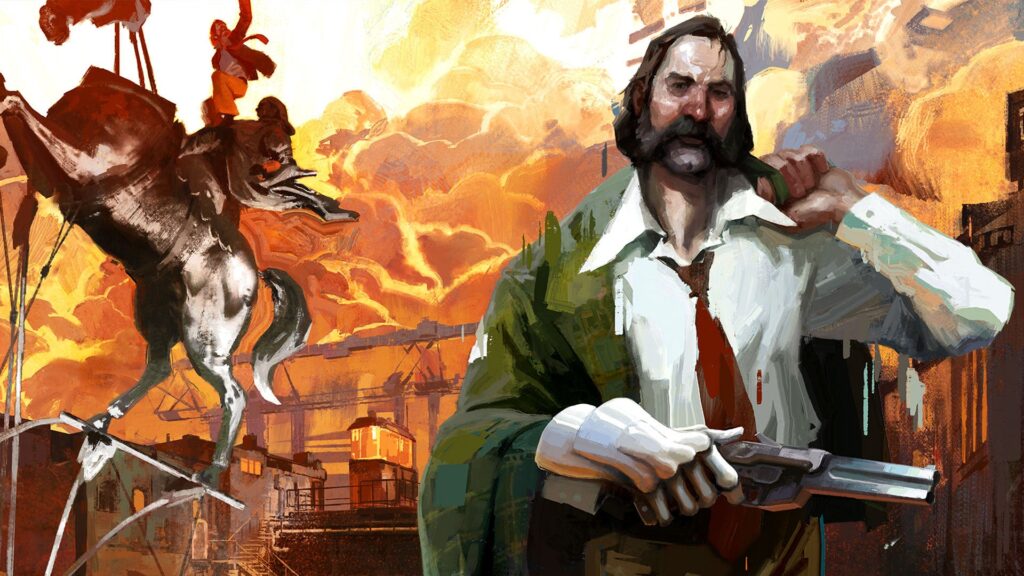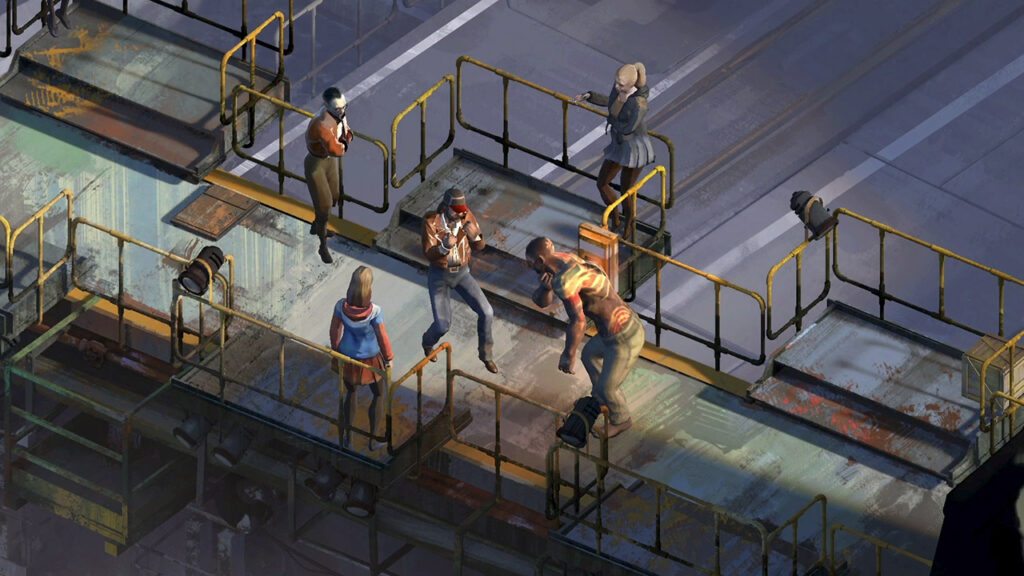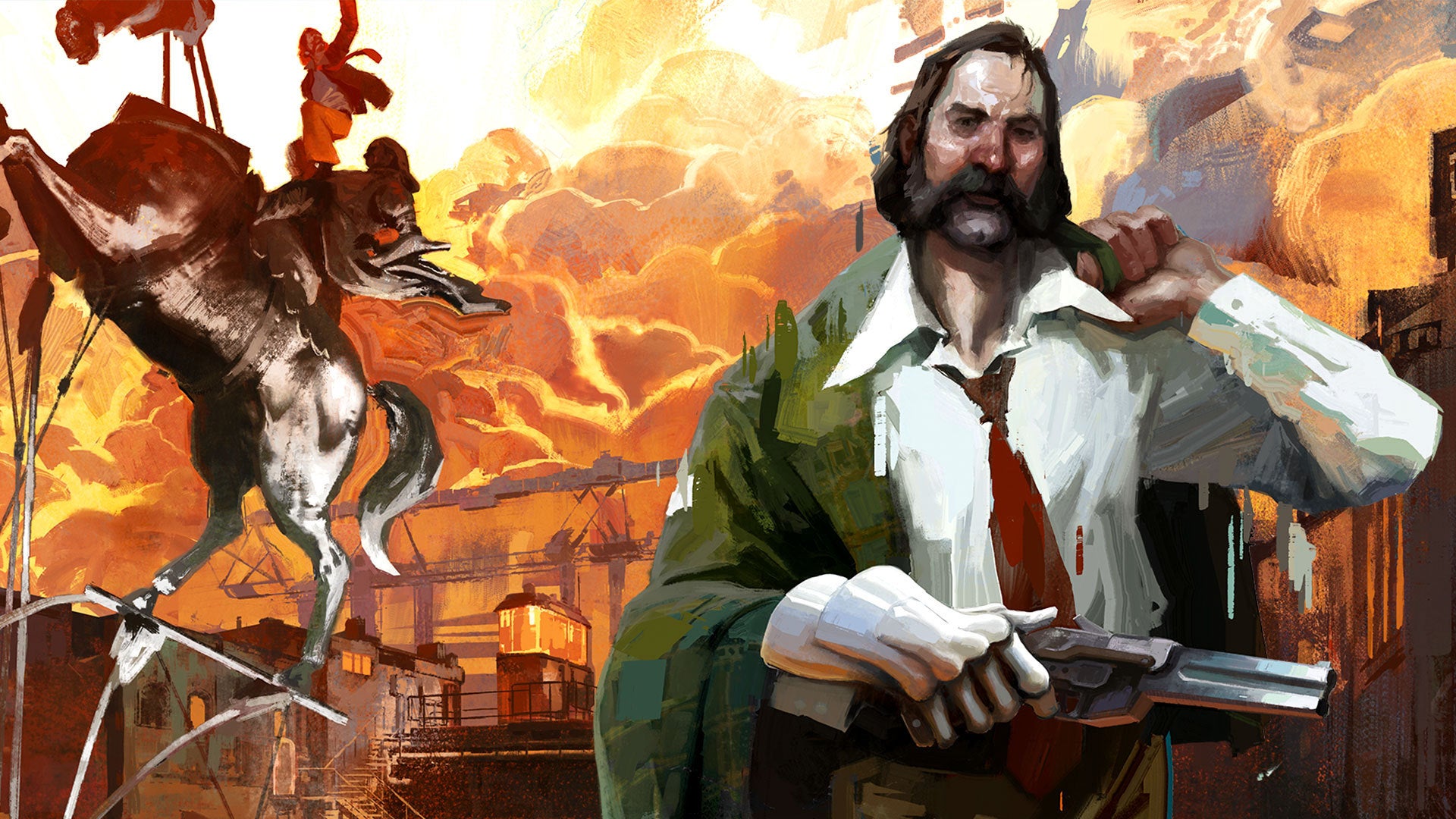
Disco Elysium is a 2019 role-playing video game developed and published by ZA/UM. Inspired by Infinity Engine-era games, particularly Planescape: Torment, the game was written and designed by a team
Disco Elysium is a 2019 role-playing video game developed and published by ZA/UM. Inspired by Infinity Engine-era games, particularly Planescape: Torment, the game was written and designed by a team led by Estonian novelist Robert Kurvitz and features an art style based on oil painting with music by the English band British Sea Power.
Disco Elysium takes place in the seaside district of a fictional city still recovering from a revolution which occurred decades prior to the game’s start. Players take the role of an amnesiac detective who has been tasked with solving a murder mystery. During the investigation, he comes to recall events about his own past as well as current forces trying to affect the city. Disco Elysium was released for Windows in October 2019 and macOS in April 2020. An expanded version of the game featuring full voice acting and new content, subtitled The Final Cut, was released for consoles in 2021, alongside a free update for the PC and macOS versions.
Disco Elysium is a non-traditional role-playing game featuring very little combat. Instead, events are resolved through skill checks and dialogue trees via a system of 24 skills that represents different aspects of the protagonist, such as his perception and pain threshold. In addition, a system called the Thought Cabinet represents his other ideologies and personality traits, with players having the ability to freely support or suppress them. The game is based on a tabletop role-playing game setting that Kurvitz had previously created, later forming ZA/UM in 2016 to adapt it into a video game.
Disco Elysium has been cited as among the greatest video games ever made, with its narrative and art being the subject of universal acclaim. It won a number of awards from several publications, including Game of the Year. A television series adaptation was announced to be in development in 2020.[1]

Disco Elysium is a role-playing video game that features an open world and dialogue-heavy gameplay mechanics.[2][3] The game is presented in an isometric perspective in which the player character is controlled.[4] The player takes the role of a detective, who suffers from alcohol and drug-induced amnesia, on a murder case.[5] The player can move the detective about the current screen to interact with non-player characters (NPC) and highlighted objects or move onto other screens. Early in the game they gain a partner, Kim Kitsuragi, another detective who acts as the protagonist’s voice of professionalism and who may be able to offer advice or support in certain dialogue options. Other NPCs may be influenced to become temporary companions that join the group and provide similar support.
The gameplay features no combat in the traditional sense; instead, it is handled through skill checks and dialogue trees.[6] There are four primary abilities in the game: Intellect, Psyche, Physique, and Motorics. Each ability has six distinct secondary skills for a total of 24.[7] The player improves these skills through skill points earned from leveling up. The choice of clothing that the player equips on the player-character can impart both positive and negative effects on certain skills.[6] Upgrading these skills helps the player character pass skill checks, based on a random dice roll, but potentially result in negative effects and character quirks, discouraging minmaxing. For instance, a player character with high Drama may be able to detect and fabricate lies effectively, but may also become prone to hysterics and paranoia. Likewise, high Electrochemistry shields the player character from the negative effects of drugs and provides knowledge on them, but may also lead to substance abuse and other self-destructive, self-gratifying behaviors.[7]
Disco Elysium features a secondary inventory system known as the “Thought Cabinet”. Thoughts are unlockable through conversations with other characters, as well as through internal dialogues within the mind of the player character himself. The player is then able to “internalize” a thought through a certain amount of in-game hours, which, once completed, grants the player character permanent benefits but also occasionally negative effects, a concept that ZA/UM compared to the trait system used in the Fallout series.[8] A limited number of slots are available in the Thought Cabinet at the start, though more can be gained with experience levels. For example, an early possible option for the Thought Cabinet is the “Hobocop” thought, in which the character ponders the option of living on the streets to save money, which reduces the character’s composure with other NPCs while the thought is internalized. When the character has completed the Hobocop thought, it allows them to find more junk on the streets that can be sold for money.[9][10]
The 24 skills also play into the dialogue trees, creating a situation where the player-character may have an internal debate with one aspect of their mind or body, creating the idea that the player is communicating with a fragmented persona. These internal conversations may provide suggestions or additional insight that can guide the player into actions or dialogue with the game’s non-playable characters, depending on the skill points invested into the skill. For example, the Inland Empire, a subskill of the Psyche, is described by ZA/UM as a representation of the intensity of the soul, and may come into situations where the player-character may need to pass themselves off under a fake identity with the conviction behind that stance, should the player accept this suggestion when debating with Inland Empire.[11]

Leave a Reply